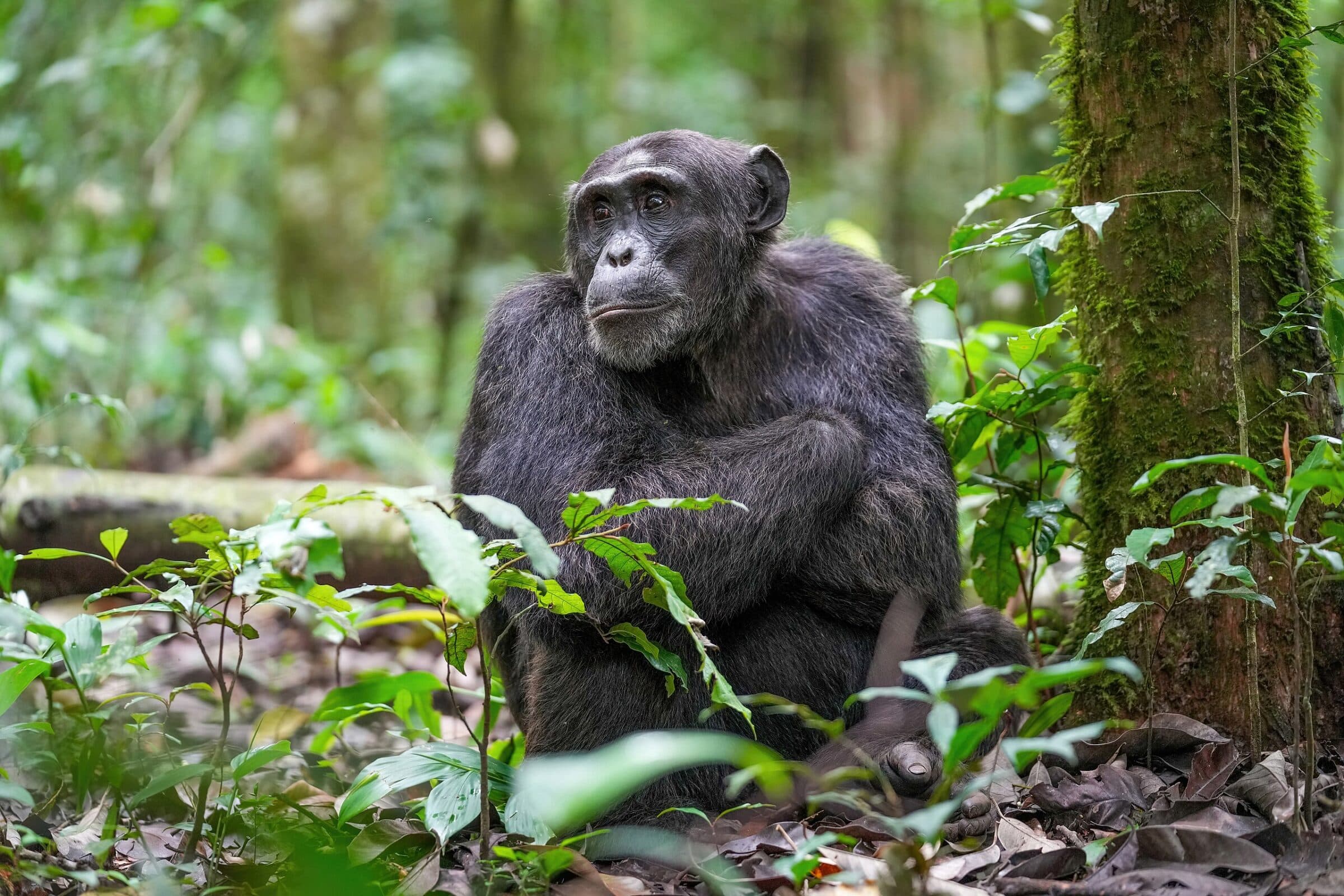At Science Alert, Michelle Starr reports,
In a series of experiments designed to test the metacognition of these fascinating apes, psychologist Hanna Schleihauf of Utrecht University and her colleagues observed, for the first time, how chimpanzees can weigh different kinds of evidence — and change their beliefs in response to a stronger argument.
“This is really the strongest and hardest test for this understanding of so-called second-order evidence,” Schleihauf told Science Alert. “I think we have the evidence that we can say, okay, no, rationality in its fundamental form is not uniquely human, but we also share some basic processes of this with chimpanzees.”
“Chimps Can Revise Their Beliefs When Shown New Evidence, Study Finds,” October 31, 2025. Here’s the paper (not open access).
What’s in the Box?
The chimpanzees were tested on various sight and hearing cues, some of which were false, in order to determine whether there was a slice of apple in a box. Generally, they did change their minds when presented with new information.
This was taken by the researchers as disconfirming the understanding of reason set out by Aristotle (384–322 BC):
It’s the Aristotelian school of philosophy that considers humans the “rational” animal – the one species on Earth with the capacity for reasoned decision-making. In recent years, however, we have started to learn that this assumption may be hubristic, with many animals demonstrating levels of intelligence Aristotle may have thought beyond them.
“Study Finds”
But Why Just Chimps?
A smart dog will probably learn to find treats in the same way, by focusing on the good leads. And that’s exactly what animal intelligence is good for. Aristotle’s understanding of reason is in quite another league:
Among the great achievements to which Aristotle can lay claim is the first systematic treatment of the principles of correct reasoning, the first logic. Although today we recognize many forms of logic beyond Aristotle’s, it remains true that he not only developed a theory of deduction, now called syllogistic, but added to it a modal syllogistic and went a long way towards proving some meta-theorems pertinent to these systems.
Stanford Encyclopedia of Philosophy
Thus, based on what he meant by reasoning, Aristotle said things like
- “It is the mark of an educated mind to be able to entertain a thought without accepting it.”
- “The whole is greater than the sum of its parts.”
- “We are what we repeatedly do. Excellence, then, is not an act but a habit.”
No chimpanzee or dog is concerned with such matters or needs to be. The trouble many researchers go to in order to try to efface the stark reality of human exceptionalism is astonishing. Something metaphysical clearly underlies their quest.
There is a book in that for a thoughtful researcher.
Cross-posted at Mind Matters News.









































